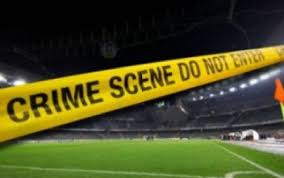August 24 – With global match-fixing and results manipulation showing little sign of easing, the International Centre for Sport Security (ICSS) has joined forces with the United Nations Office on Drugs and Crime to release a new resource guide which both organisations hope will help law enforcement and sports organisations better detect cases of wrongdoing.
Chris Eaton, Integrity Advisor to the ICSS president said: “The ICSS has inspired and funded a fundamentally independent guide for police and other investigators who will focus on corruption in the field of play in all sports, be they physical, mind, digital or fantasy sports. While today the world is rightly focussed on corruption in sport administration, the different yet longer-term damage is being inflicted on sport by organised crime, and only professionally focussed globally ranging investigations by police will stem it.
“Sport betting remains the money source criminality wants by corrupting sport competitions. Sport bodies have little jurisdiction in this, but police need to understand sport and sport betting to drive criminals out of both. In this handbook the ICSS and the UNODC have created a resource that should take police interest and involvement to the next level in helping sport and sport betting to close many their currently enormous vulnerabilities to crime.”
The new tool is the result of an extensive 18-month project led by both bodies and has been developed to help investigators and raise awareness about the threat of illegal activities. Over 40 experts contributed including officials from FIFA, the International Olympic Committee and INTERPOL.
Speaking at the launch of the resource guide, John Brandolino, UNODC Director for Treaty Affairs, said: “The problem of match-fixing is such that it undermines integrity in sport with the significant illicit profits it generates allowing organized crime and corruption to thrive. In addition, the investigative skills of both law enforcement agencies and sports organizations around the world which are needed to identify and apprehend those responsible, are relatively underdeveloped.”
For his part, Mohammed Hanzab, President of ICSS, while highlighting the expert contributions in the development of the guide, added: “This handbook provides a comprehensive range of case studies, investigation techniques and approaches to combat match-fixing as well as providing valuable guidance on how to disrupt the international organized crime syndicates that now operate in sport.”
Using the United Nations Convention against Transnational Organised Crime (UNTOC) and the United Nations Convention against Corruption (UNCAC) as a basis, topics and themes covered in the guide include:
- Co-operation between law enforcement and sport investigators
- Sources of information, allegations, intelligence and evidence
- Evidence and interviewing
- Why Match-Fixing is an International Issue
- Application of Existing Legal Instruments e.g. UNCAC, UNTOC etc
- Relationship between Investigators and Prosecutors in a Criminal or Sporting Case
- Alternative & Complimentary Approaches to Combat Match-Fixing
Contact the writer of this story at moc.l1734835694labto1734835694ofdlr1734835694owedi1734835694sni@w1734835694ahsra1734835694w.wer1734835694dna1734835694

